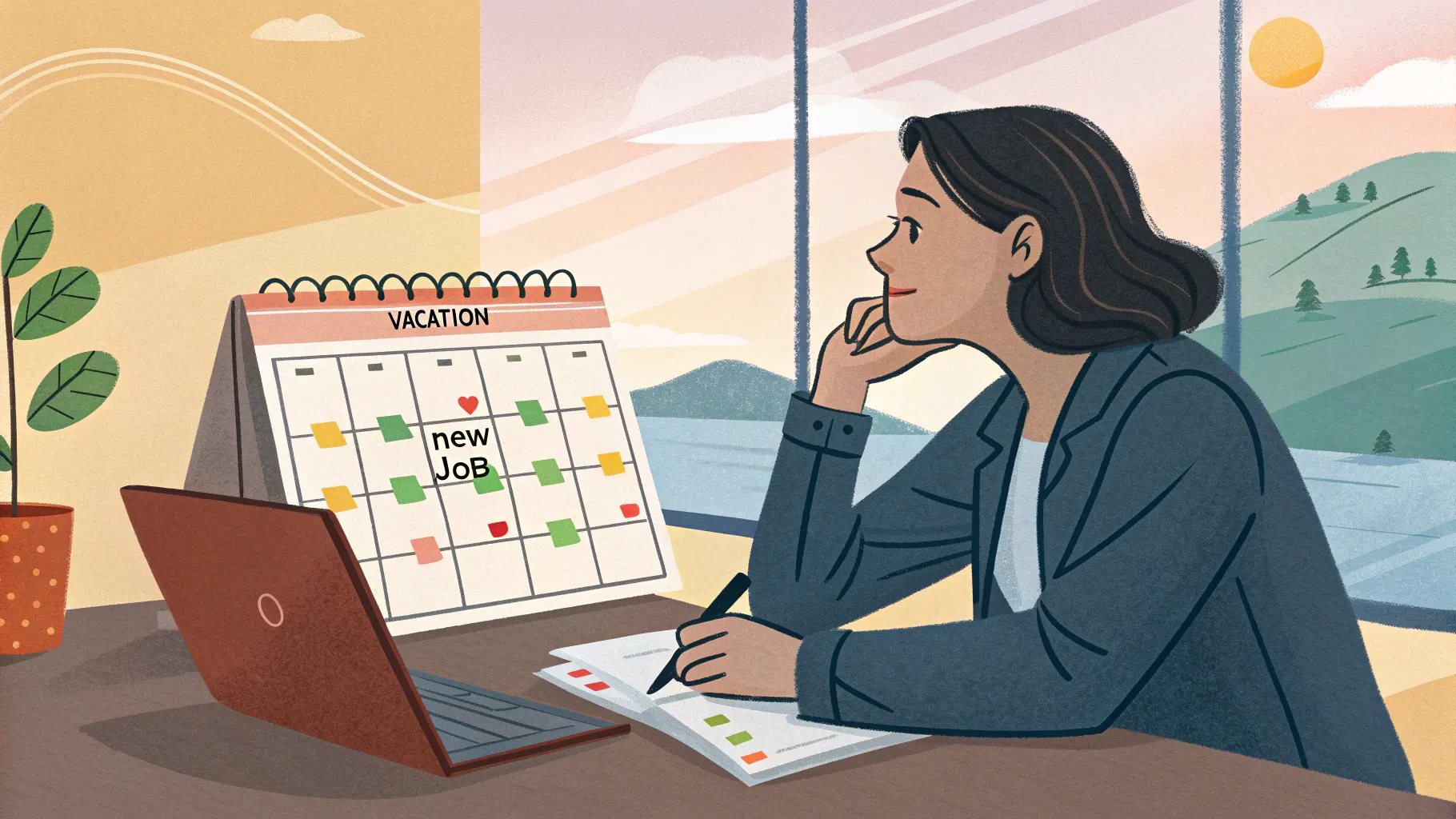We’ve all been there. You’ve just landed a new job offer, the excitement is bubbling, and then you remember—that vacation you’ve had planned for months. The one you’ve already paid for. The one you’ve been looking forward to. Do you mention it? When? How?
I recently watched a short video that perfectly captured this common dilemma. The scenario shows two approaches to handling a pre-planned vacation when starting a new job, and the contrast between them is striking.
The Wrong Way vs. The Right Way
In the first scenario, the candidate bluntly asks about taking time off immediately after being asked if they have questions during the interview: “Yeah. I just have one question. I’m going on vacation June 14 through the eighteenth. So, can I get off for that?”
This approach makes me cringe. It positions the vacation as the candidate’s primary concern rather than the job itself. Timing and delivery matter tremendously in professional communications, especially when asking for accommodations before you’ve even been hired.
The second scenario shows a much more professional approach. After receiving and accepting the offer, the candidate says: “I’m wondering if we could discuss my onboarding timeline. So I see here that there is a June 5 start date, which works with my schedule. However, I do have a prior commitment where I’ll be out of town June 14 through the sixteenth.”
Why the Second Approach Works Better
The second approach succeeds for several key reasons:
- It waits until after receiving the job offer
- It frames the vacation as a “prior commitment” rather than just a vacation
- It offers flexibility with solutions (start before or after the vacation)
- It maintains a professional, collaborative tone
When I’ve faced this situation myself, I’ve found that employers generally respect prior commitments—especially those made before you even applied for the job. What they don’t appreciate is feeling like your priorities are elsewhere from day one.
The Psychology Behind the Timing
There’s a psychological component at play here that’s worth understanding. Before making you an offer, companies are evaluating whether you’re the right fit. Bringing up time-off requests during this phase can create doubt about your commitment.
However, once they’ve decided they want you, the dynamic shifts. Now they’re invested in making things work. This is why waiting until after receiving an offer puts you in a much stronger position to negotiate.
I’ve seen friends lose job opportunities by handling this poorly, while others have successfully negotiated multiple weeks off shortly after starting new positions—all because they understood this crucial timing difference.
Practical Tips for Handling Pre-Planned Vacations
- Wait until you have a formal job offer before mentioning pre-planned time off
- Frame it as a “prior commitment” rather than just a vacation
- Offer flexible solutions that show you’re thinking about the company’s needs
- Be clear about dates and duration
- Express enthusiasm about starting the new role
Remember that how you communicate about your needs sets the tone for your professional relationship. Being straightforward yet thoughtful demonstrates that you can balance personal commitments with professional responsibilities.
The most important takeaway here is that it’s not just about what you ask for, but how and when you ask. A pre-planned vacation doesn’t have to be a deal-breaker when starting a new job. With the right communication approach, you can honor your commitments while starting your new role on the right foot.
Next time you find yourself in this situation, take a deep breath and remember: it’s all in the delivery. Wait for the offer, present your situation professionally, offer solutions, and you’ll likely find your new employer more accommodating than you expected.

